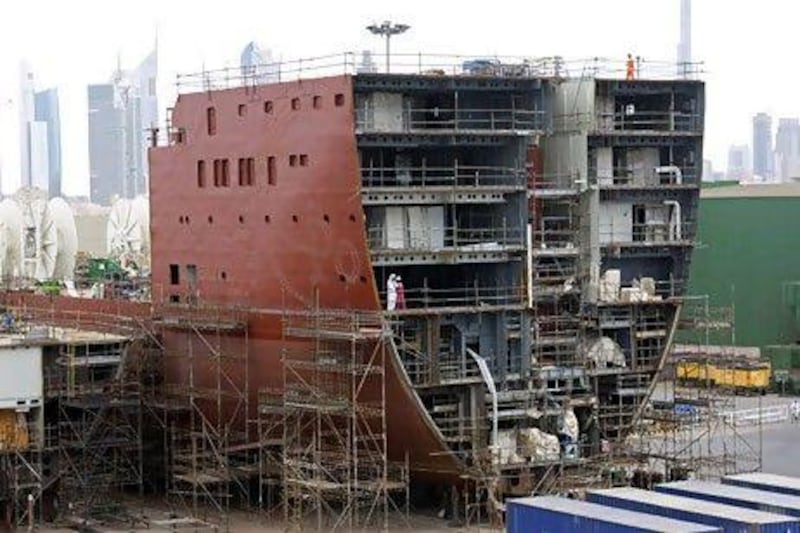Drydocks World's resorting to insolvency protection is a big step forward for Dubai and for the UAE.
It makes a start on putting the country's corporates on an equal footing with international competitors, most of whom have access to bankruptcy protection schemes run according to the principles of international best practice.
But there is still work to be done. UAE policymakers should further advance the cause of orderly, efficient management of financial difficulties, in the corporate and personal spheres. And a little more transparency would help that process.
Drydocks' position almost perfectly matches that of Dubai Inc. A good, profitable business that has become a market leader in the region overborrowed in the boom years and has to deal with the legacy of that extravagance.
In the case of Drydocks, the problem is the US$2.2 billion (Dh8.08bn) of loans it took out to buy shipyards and other assets in South East Asia at the height of the boom in 2006. In hindsight, it is obvious it overpaid, and it is looking to a sale or joint-venture deal to raise some money from the assets.
What's at issue is how much of the purchase price Drydocks can get back. You must assume it will be a low proportion.
More transparency is needed on the deal Drydocks has done with the majority of its creditors. As they were (vaguely) spelled out, the sums do not really add up.
Drydocks said its new arrangements with creditors would result in the debts being repaid in five years "to start with". The company has $318 million of cash in the bank, and said it was heading for earnings this year of about $100m, with some big orders in the pipeline.
That's good news for the company, its employees and contractors (who are not affected by Decree 57, which established the Dubai World Tribunal). But to repay the full amount over five years on the basis of those financials looks challenging.
"Haircuts" - enforced reductions of the value of creditors' original loans - look inevitable. It's just a question of how much.
Drydocks, its management and advisers insisted, is a private company and not obliged to reveal such details. But it is indirectly owned by the Government of Dubai and has thousands of legitimate stakeholders for whom this information is relevant.
You could even make the case that greater revelation is in the emirate's strategic interest, to avoid a repetition of the negative global images conjured up by the Dubai World problems of 2009.
But still, the use of Decree 57 should be commended, if only for the message it sends to other holders of "distressed" Dubai debt. The "holdouts" who have not agreed to Drydocks' terms are in a difficult position: do they cave in, or do they spend millions on litigation that will probably get them nowhere?
Dubai policymakers must now give serious consideration to two crucial issues.
The first is the easier to solve. Decree 57 can be used only for Dubai World-related companies, and this no longer makes sense. Its principles should be extended across the whole of the emirate's corporate arena.
There are other parts of Dubai Inc, most notably parts of the Dubai Holding. Although the corporate dynamics are different, relief from aggressive creditors would be equally welcome, as indeed it would be to other non-governmental companies struggling with big debts.
Second, consideration should also be given to the extension of the principles to individuals. Many parts of the world run voluntary personal insolvency schemes that get people through tough financial times and back on their feet.
In contrast, people with personal financial problems often find themselves criminalised in the UAE. The spirit of Decree 57 should be offered equally to all victims of the financial crisis.





